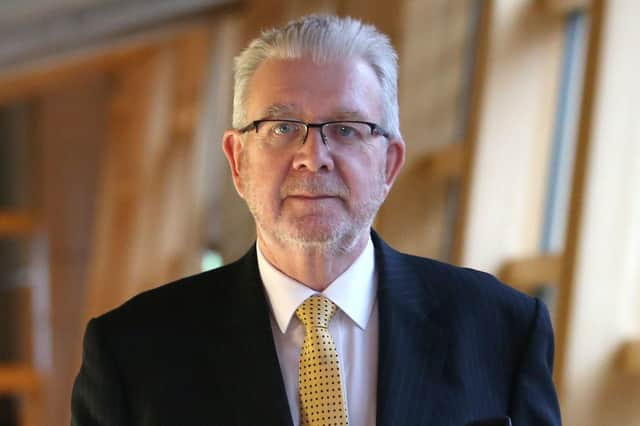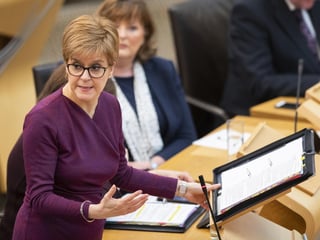Coronavirus: Holyrood to rubberstamp UK emergency legislation


All parties said they would back the legislative consent motion which will give the Scottish Parliament’s seal of approval to the UK Coronavirus Bill which was introduced in Westminster today.
Scotland’s Constitution Secretary, Michael Russell, said the measures in the Bill would “help enhance Scotland’s response” to the virus and “strengthen frontline services.”
Advertisement
Hide AdAdvertisement
Hide AdHe told MSPs the legislation had been developed through “close co-operation” between the UK government and all devolved administrations which was “unique and extraordinary given the virtual stand off on other legislation that has been the norm for the past three years”. However they had worked together because of “extraordinary public health and economic challenges posed by the pandemic”.
The new legislation, would he said, enable the Scottish Government to bring more health professionals and social workers into the workforce, relax regulations to ease the burden on frontline staff, and take steps to help slow the spread of the virus.
The Bill includes details for shutting down the UK's ports and airports, grants new powers to cancel events and allow the police to compel potentially infectious people to undergo coronavirus screening and assessment. Not all the measures will come into force immediately, and they can also be "switched off" if they are no longer necessary.
Mr Russell said the Scottish Government would recommend granting legislative consent – which is needed as the Bill covers reserved and devolved matters – as the new law would bring about “changes we need to respond in the most effective manner” to the spread of the virus.
He said: “We are, as a country and across the globe, facing an unprecedented set of challenges. Every life will change.
“I should emphasise these measures are temporary and will only be used if required. I make a commitment that we will institute, after discussion across the Scottish Parliament, appropriate reporting on how and when the powers in the Bill have been used by the Scottish Government.
“But we must put in place what we need to do the right thing for everyone and take action to protect, to enhance and to strengthen not just our response, but ourselves. Together we can and will win through.”
Acknowledging concerns about the rush to get the Bill through Parliament, and that the emergency powers will be in place for two years, he said there was a “recognition of the need to be vigilant in the protection of human rights particularly of those who are least able to protect themselves.
Advertisement
Hide AdAdvertisement
Hide Ad“I hope that those at Westminster and more widely who are rightly concerned that the two year sunset period for this Bill needs to be looked at very carefully and safeguards put in place for regular reporting, review and renewal if required will be heeded in their concerned and constructive criticism,” he said.
The legislation will allow recently-retired doctors or medical students to be registered as regulated healthcare professionals, to boost the number of NHS staff as well as social workers who have recently left the profession to be temporarily added to registers.
Workers will also be able to take "emergency volunteer leave" for up to four weeks, with a compensation fund to be established to cover their loss of earnings and expenses
Schools and children's nurseries can be forced to close - or to stay open, while the government would have the power to restrict or ban any events or gatherings.
There will also be the removal of some bureaucracy surrounding funerals and cremations, including expanding the list of people who can register a death to include funeral directors acting on behalf of the family.
The Bill will also allow the government to bring in its planned action to temporarily suspend the rule that means statutory sick pay is not paid for the first three days of work missed, in a measure that will be backdated to 13 March.
The consent motion will be put to Holyrood next Tuesday, and Mr Russell committed to “institute appropriate reporting on how and when the powers in the Bill have been used by the Scottish Government and in our own further emergency coronavirus legislation, which we hope to bring forward to put other urgent legislative changes specifically for our own competences on the statute book, hopefully before Easter.”
He stressed that the creation of new powers did not automatically mean they would be used. “In using the powers we have, and will gain, we will always be guided by the principle that decisions will be taken at the appropriate time on actions and measures to be taken, based on the situation here in Scotland and other parts of the UK,” he said
“We will use those powers in the appropriate way, informed always by our own response planning and by ongoing joint work with the UK Government and other devolved governments.
